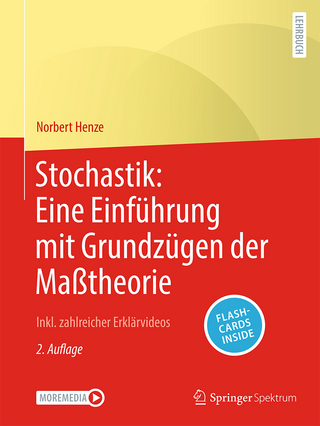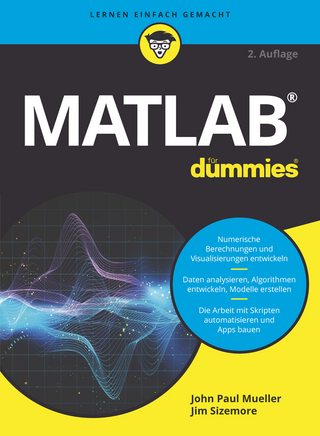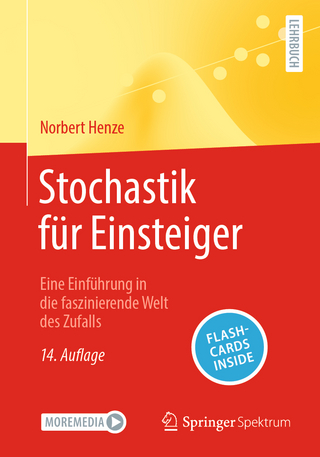
Quantum Stochastic Processes and Noncommutative Geometry
Seiten
2007
Cambridge University Press (Verlag)
978-0-521-83450-6 (ISBN)
Cambridge University Press (Verlag)
978-0-521-83450-6 (ISBN)
The authors detail the interaction between the two vigorous fields of non-commutative geometry and quantum stochastic processes - subjects with wide ranging applications within the world of physics. They describe a modern method of constructing quantum stochastic processes and relate these constructions to the associated non-commutative geometric spaces.
The classical theory of stochastic processes has important applications arising from the need to describe irreversible evolutions in classical mechanics; analogously quantum stochastic processes can be used to model the dynamics of irreversible quantum systems. Noncommutative, i.e. quantum, geometry provides a framework in which quantum stochastic structures can be explored. This book is the first to describe how these two mathematical constructions are related. In particular, key ideas of semigroups and complete positivity are combined to yield quantum dynamical semigroups (QDS). Sinha and Goswami also develop a general theory of Evans-Hudson dilation for both bounded and unbounded coefficients. The unique features of the book, including the interaction of QDS and quantum stochastic calculus with noncommutative geometry and a thorough discussion of this calculus with unbounded coefficients, will make it of interest to graduate students and researchers in functional analysis, probability and mathematical physics.
The classical theory of stochastic processes has important applications arising from the need to describe irreversible evolutions in classical mechanics; analogously quantum stochastic processes can be used to model the dynamics of irreversible quantum systems. Noncommutative, i.e. quantum, geometry provides a framework in which quantum stochastic structures can be explored. This book is the first to describe how these two mathematical constructions are related. In particular, key ideas of semigroups and complete positivity are combined to yield quantum dynamical semigroups (QDS). Sinha and Goswami also develop a general theory of Evans-Hudson dilation for both bounded and unbounded coefficients. The unique features of the book, including the interaction of QDS and quantum stochastic calculus with noncommutative geometry and a thorough discussion of this calculus with unbounded coefficients, will make it of interest to graduate students and researchers in functional analysis, probability and mathematical physics.
Kalyan Sinha is a Distinguished Scientist in the Statistics-Mathematics Unit at the Indian Statistical Institute, New Dehli. Debashish Goswami is an Assistant Professor in the Statistics-Mathematics Unit at the Indian Statistical Institute, Kolkata.
1. Introduction; 2. Preliminaries; 3. Quantum dynamical semigroups; 4. Hilbert modules; 5. Quantum stochastic calculus with bounded coefficients; 6. Dilation of quantum dynamical semigroups with bounded generator; 7. Quantum stochastic calculus with unbounded coefficients; 8. Dilation of quantum dynamical semigroups with unbounded generator; 9. Noncommutative geometry and quantum stochastic processes; Bibliography; Index.
| Erscheint lt. Verlag | 25.1.2007 |
|---|---|
| Reihe/Serie | Cambridge Tracts in Mathematics |
| Verlagsort | Cambridge |
| Sprache | englisch |
| Maße | 162 x 235 mm |
| Gewicht | 561 g |
| Themenwelt | Mathematik / Informatik ► Mathematik ► Wahrscheinlichkeit / Kombinatorik |
| Naturwissenschaften ► Physik / Astronomie ► Quantenphysik | |
| ISBN-10 | 0-521-83450-3 / 0521834503 |
| ISBN-13 | 978-0-521-83450-6 / 9780521834506 |
| Zustand | Neuware |
| Haben Sie eine Frage zum Produkt? |
Mehr entdecken
aus dem Bereich
aus dem Bereich
Buch | Softcover (2024)
Springer Spektrum (Verlag)
44,99 €
Eine Einführung in die faszinierende Welt des Zufalls
Buch | Softcover (2024)
Springer Spektrum (Verlag)
39,99 €


